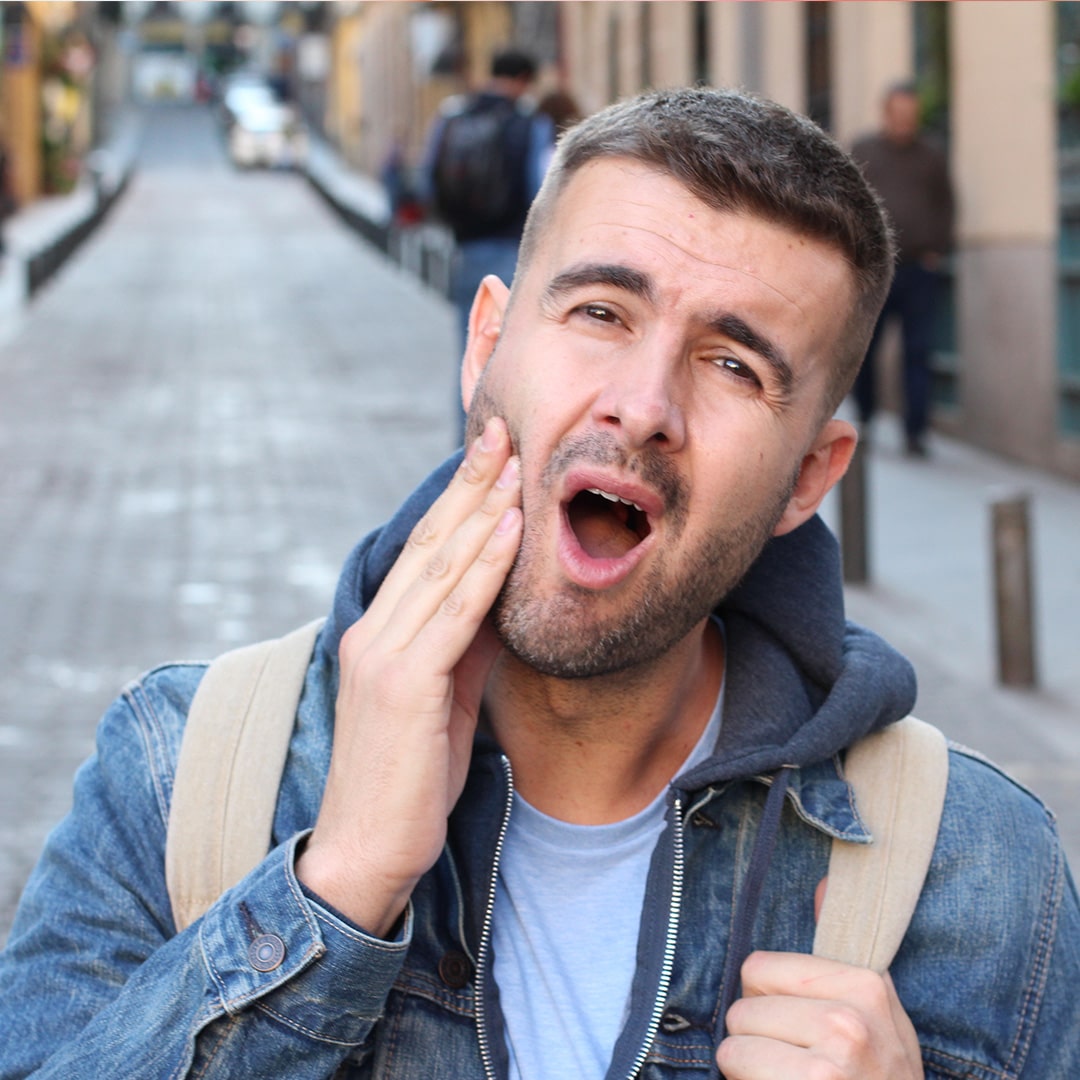Teeth grinding, referred to as bruxism, is a common problem for both children and adults. While teeth grinding or teeth clenching more commonly occurs at night, called nocturnal bruxism, some people suffer from bruxism while they are awake. This is a problem because both teeth grinding at night and diurnal, or daytime bruxism, wears down your tooth enamel, causes sensitivity, and can even cause temporal mandibular disorder (TMD).
If you find yourself clenching your jaw or grinding your teeth during the daytime, you may suffer from daytime bruxism. Here’s what you need to know about grinding your teeth during the day, what you can do about it, and what it potentially means for your sleeping habits as well.
Common Reasons You’re Grinding Your Teeth While Awake
There are many reasons why you may be clenching your jaw or grinding your teeth during the day. The most common include:
- Stress – Just like grinding teeth at nighttime, the most common cause of clenching and grinding during the day is stress. Daytime bruxism has even been linked to jobs that come with high emotional stress, including law enforcement, military, and healthcare personnel. While clenching seems to be a normal human response to significant stress, people who are more susceptible to stress or who have very stressful careers may be at risk for regular clenching and grinding that leads to headaches, jaw pain, TMD, enamel erosion, toothaches, and tooth loss.
- Misaligned Bite – For some, missing, crooked, or misaligned teeth can cause you to clench and grind your teeth while awake.
- Excessive Caffeine or Alcohol – Consuming a significant amount of caffeine, found in coffee, sodas, and chocolate, and alcohol, can increase your risk of grinding during the day.
What to Do About Teeth Grinding During the Daytime
Chronic teeth grinding and teeth clenching during the day can result in the fracture, loosening, or even the loss of teeth. Over time, teeth can be worn down to stumps, resulting in the need for crowns, bridges, implants, or even dentures. It’s essential to take measures to stop daytime grinding before damaging your smile. To get your daytime bruxism under control, you can try the following:
- Reduce Your Stress Levels – Since stress is the primary cause of daytime grinding, reducing your stress levels is one of the best ways to prevent and treat this problem. Some recommended methods for reducing your stress levels include:
- Acupuncture
- Yoga
- Deep breathing
- Meditation
- Exercise
- Writing in a journal when you feel stressed
- Consider Orthodontic Treatment – If a misalignment problem is contributing to clenching or grinding your teeth, then you may need to consider orthodontic treatment. Talk to your dentist or orthodontist about whether braces or Clear Correct clear aligners may alleviate problems with bruxism.
- Avoid or Limit Caffeine and Alcohol Consumption – Since both caffeine and alcohol consumption are linked to teeth grinding, consider limiting or avoiding caffeine and alcohol altogether to reduce your symptoms.
What Grinding Teeth During The Day Means
If you’re grinding your teeth while awake during the day, there’s a good chance you’re doing so at night as well. One of the best treatments for nighttime bruxism is wearing a fitted mouthguard from your dentist. A mouthguard can help protect your teeth from damage and reduce the effects of grinding on muscle, tissues, and bone.
In more severe cases, your dentist may prescribe a muscle relaxant to take before you go to bed to relax the muscles and prevent clenching and grinding. However, this is usually a last resort in cases where bruxism causes difficulty in opening the mouth or severe pain. For most people, a quality mouth guard from your dentist is enough to stop bruxism and prevent further damage to your teeth and issues like TMD.
Triangle Dentistry, located in Raleigh, NC, provides a state-of-the-art facility that offers exceptional general dental and specialty services guided by empathy of a patient’s needs and desires. Services range from dental crowns to veneers and whitening procedures. For further information, questions, or to schedule an appointment, contact the office at (919) 747-3608.
